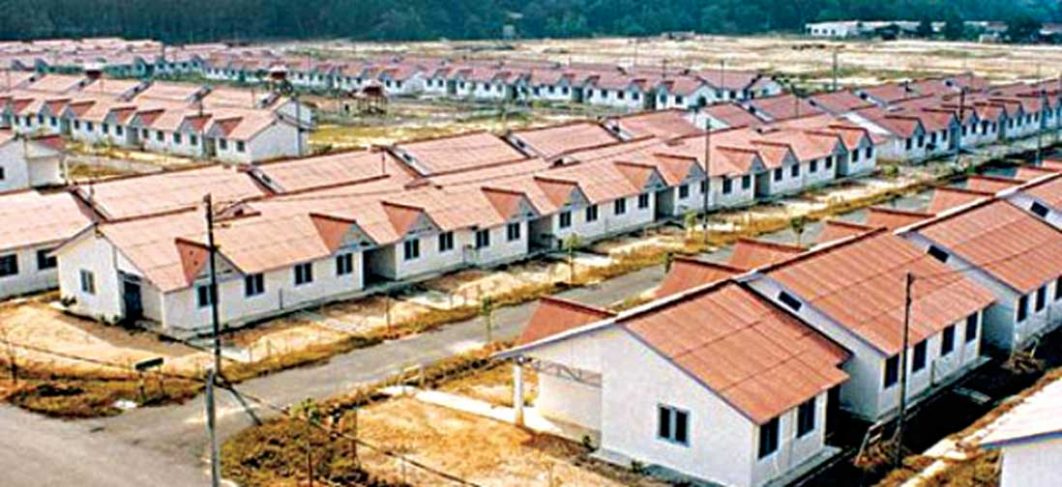
Secure.gov websites use HTTPS
A lock (Lock Locked padlock) or https:// suggests you've safely connected to the.gov website. Share delicate info just on authorities, safe sites.
- About - The Attorney General
- Organizational Chart
- Budget & Performance
- History
- Privacy Program
- Press Releases
- Speeches
- Videos
- Photo Galleries
- Blogs
- Podcasts
- Guidance Documents
- Forms
- Publications
- Information for Victims in Large Cases
- Justice Manual
- Business and Contracts
- Why Justice?
- Benefits
- DOJ Vacancies
- Legal Careers at DOJ
Utilities
- About About
Our Work
- Contact the Division Contact the Division

Report an Offense
- Cases and Matters
- Press Room Press Room
Videos
Publications
- Employment Opportunities Employment Opportunities
Experienced Professionals
Chief law officer ´ s Honors Program

Volunteer and Paid Student Internship Programs
- Civil Liberty FOIA Civil Liberty FOIA
Emmett Till Act/Cold Case Memoranda
- En español
- About - title=" About" About
- The Chief law officer
- Organizational Chart
- Budget & Performance
- History
- Privacy Program
- title=" News" News
- Press Releases
- Speeches
- Videos
- Photo Galleries
- Blogs
- Podcasts
- title=" Guidance & Resources" Resources
- Guidance Documents
- Forms
- Publications
- Information for Victims in Large Cases
- Justice Manual
- Business and Contracts
- Employment
- Why Justice?
- Benefits
- DOJ Vacancies
- Legal Careers at DOJ
- Our Offices
- Find Help
- Contact Us
Breadcrumb
1. Justice.gov
2. Civil Rights Division
3. The Fair Housing Act

The Fair Housing Act
- Facebook
- X.
- LinkedIn.
- Email
The Fair Housing Act, 42 U.S.C. 3601 et seq., prohibits discrimination by direct providers of housing, such as proprietors and realty companies in addition to other entities, such as towns, banks or other loan provider and house owners insurance provider whose discriminatory practices make housing not available to persons because of:
race or color.
faith.
sex.
nationwide origin.
familial status, or.
disability.
In cases involving discrimination in mortgage loans or home improvement loans, the Department may submit fit under both the Fair Housing Act and the Equal Credit Opportunity Act. The Department brings cases where there is proof of a pattern or practice of discrimination or where a rejection of rights to a group of individuals raises a problem of public importance. Where force or threat of force is used to reject or interfere with reasonable housing rights, the Department of Justice might set up criminal proceedings. The Fair Housing Act also provides procedures for dealing with individual grievances of discrimination. Individuals who think that they have actually been victims of an illegal housing practice, might file a complaint with the Department of Housing and Urban Development [HUD] or file their own suit in federal or state court. The Department of Justice brings suits on behalf of people based on referrals from HUD.
Discrimination in Housing Based Upon Race or Color
Among the central objectives of the Fair Housing Act, when Congress enacted it in 1968, was to prohibit race discrimination in sales and leasings of housing. Nevertheless, more than 30 years later on, race discrimination in housing continues to be a problem. Most of the Justice Department's pattern or practice cases include claims of race discrimination. Sometimes, housing service providers try to camouflage their discrimination by giving incorrect details about schedule of housing, either saying that nothing was available or steering homeseekers to specific locations based upon race. Individuals who get such incorrect details or misdirection might have no knowledge that they have been victims of discrimination. The Department of Justice has actually brought many cases alleging this sort of discrimination based upon race or color. In addition, the Department's Fair Housing Testing Program seeks to uncover this sort of hidden discrimination and hold those responsible liable. Most of the mortgage loaning cases brought by the Department under the Fair Housing Act and Equal Credit Opportunity Act have actually declared discrimination based on race or color. A few of the Department's cases have likewise declared that towns and other regional federal government entities violated the Fair Housing Act when they rejected licenses or zoning modifications for housing developments, or relegated them to primarily minority areas, because the potential citizens were anticipated to be mainly African-Americans.
Discrimination in Housing Based Upon Religion
The Fair Housing Act restricts discrimination in housing based upon religious beliefs. This prohibition covers circumstances of obvious discrimination against members of a specific faith as well less direct actions, such as zoning regulations created to limit using personal homes as a locations of worship. The number of cases submitted because 1968 declaring religious discrimination is little in contrast to some of the other prohibited bases, such as race or nationwide origin. The Act does contain a restricted exception that allows non-commercial housing run by a spiritual company to reserve such housing to persons of the exact same religion.
Discrimination in Housing Based Upon Sex, Including Sexual Harassment
The Fair Housing Act makes it illegal to discriminate in housing on the basis of sex. Recently, the Department's focus in this location has actually been to challenge unwanted sexual advances in housing. Women, particularly those who are bad, and with limited housing choices, typically have little recourse however to endure the humiliation and deterioration of sexual harassment or danger having their families and themselves removed from their homes. The Department's enforcement program is intended at property owners who produce an illogical living environment by demanding sexual favors from occupants or by producing a sexually hostile environment for them. In this way we look for both to acquire relief for tenants who have been treated unfairly by a property owner due to the fact that of sex and likewise discourage other potential abusers by making it clear that they can not continue their conduct without facing consequences. In addition, prices discrimination in mortgage lending might likewise adversely impact females, particularly minority ladies. This type of discrimination is unlawful under both the Fair Housing Act and Equal Credit Opportunity Act.
Discrimination in Housing Based Upon National Origin
The Fair Housing Act restricts discrimination based upon nationwide origin. Such discrimination can be based either upon the country of an individual's birth or where his/her forefathers come from. Census data indicate that the Hispanic population is the fastest growing sector of our country's population. The Justice Department has actually taken enforcement action against community federal governments that have actually tried to lower or restrict the number of Hispanic families that might live in their communities. We have taken legal action against loan providers under both the Fair Housing Act and the Equal Credit Opportunity Act when they have imposed more rigid underwriting requirements on mortgage or made loans on less beneficial terms for Hispanic debtors. The Department has actually also taken legal action against lending institutions for discrimination versus Native Americans. Other areas of the country have actually experienced an increasing variety of national origin groups within their populations. This consists of new immigrants from Southeastern Asia, such as the Hmong, the previous Soviet Union, and other parts of Eastern Europe. We have actually acted versus private proprietors who have actually victimized such people.
Discrimination in Housing Based Upon Familial Status
The Fair Housing Act, with some exceptions, prohibits discrimination in housing against families with children under 18. In addition to restricting a straight-out denial of housing to households with children, the Act likewise prevents housing suppliers from enforcing any unique requirements or conditions on renters with custody of children. For instance, property managers may not find households with children in any single portion of a complex, put an unreasonable restriction on the total number of persons who may live in a house, or restrict their access to leisure services offered to other occupants. In the majority of instances, the modified Fair Housing Act restricts a housing company from declining to rent or offer to households with children. However, some facilities may be designated as Housing for Older Persons (55 years of age). This kind of housing, which meets the requirements stated in the Housing for Older Persons Act of 1995, may run as "senior" housing. The Department of Housing and Urban Development (HUD) has actually published policies and additional guidance detailing these statutory requirements.
Discrimination in Housing Based Upon Disability
The Fair Housing Act forbids discrimination on the basis of disability in all kinds of housing transactions. The Act specifies individuals with a disability to imply those individuals with mental or physical problems that considerably restrict several major life activities. The term mental or physical impairment might consist of conditions such as loss of sight, hearing disability, movement impairment, HIV infection, mental retardation, alcoholism, drug dependency, chronic tiredness, learning impairment, head injury, and mental disease. The term major life activity may include seeing, hearing, strolling, breathing, carrying out manual jobs, taking care of one's self, discovering, speaking, or working. The Fair Housing Act also secures individuals who have a record of such a disability, or are considered having such a disability. Current users of illegal controlled compounds, persons convicted for prohibited manufacture or circulation of an illegal drug, sex offenders, and juvenile culprits are not thought about disabled under the Fair Housing Act, by virtue of that status. The Fair Housing Act affords no defenses to individuals with or without impairments who provide a direct threat to the individuals or residential or commercial property of others. Determining whether somebody postures such a direct danger needs to be made on an individualized basis, however, and can not be based on general presumptions or speculation about the nature of a special needs. The Division's enforcement of the Fair Housing Act's defenses for persons with impairments has actually focused on 2 major areas. One is guaranteeing that zoning and other guidelines concerning land use are not employed to hinder the property choices of these individuals, including unnecessarily restricting common, or gather together, property plans, such as group homes. The 2nd area is guaranteeing that recently constructed multifamily housing is integrated in accordance with the Fair Housing Act's availability requirements so that it is available to and functional by people with disabilities, and, in specific, those who utilize wheelchairs. There are other federal statutes that restrict discrimination versus people with impairments, consisting of the Americans with Disabilities Act, which is implemented by the Disability Rights Section of the Civil Liberty Division.
Discrimination in Housing Based Upon Disability Group Homes
Some people with disabilities may live together in congregate living plans, typically referred to as "group homes." The Fair Housing Act forbids municipalities and other regional federal government entities from making zoning or land usage choices or executing land usage policies that exclude or otherwise discriminate versus people with impairments. The Fair Housing Act makes it illegal--
- To utilize land usage policies or actions that deal with groups of persons with impairments less positively than groups of non-disabled individuals. An example would be an ordinance prohibiting housing for individuals with disabilities or a specific kind of special needs, such as psychological health problem, from finding in a particular location, while allowing other groups of unrelated people to live together because location.
- To take action against, or reject a license, for a home because of the impairment of people who live or would live there. An example would be rejecting a building authorization for a home because it was planned to offer housing for individuals with psychological retardation.
- To refuse to make affordable lodgings in land usage and zoning policies and treatments where such lodgings may be essential to manage persons or groups of individuals with impairments an equivalent chance to use and delight in housing. What makes up an affordable lodging is a case-by-case decision. Not all asked for modifications of guidelines or policies are reasonable. If a requested adjustment imposes an unnecessary financial or administrative burden on a city government, or if a modification develops a fundamental change in a local government's land use and zoning scheme, it is not a "sensible" lodging.
Discrimination in Housing Based Upon Disability-- Accessibility Features for New Construction
The Fair Housing Act defines discrimination in housing versus individuals with disabilities to consist of a failure "to design and build" specific brand-new multi-family homes so that they are available to and functional by individuals with disabilities, and especially individuals who use wheelchairs. The Act requires all freshly built multi-family residences of four or more units planned for first tenancy after March 13, 1991, to have particular functions: an accessible entryway on an accessible route, available common and public usage areas, doors sufficiently broad to accommodate wheelchairs, available paths into and through each dwelling, light switches, electric outlets, and thermostats in accessible place, supports in bathroom walls to accommodate grab bar installations, and usable cooking areas and bathrooms set up so that a wheelchair can maneuver about the area.
Developers, home builders, owners, and architects accountable for the design or building of brand-new multi-family housing might be held accountable under the Fair Housing Act if their buildings stop working to satisfy these design requirements. The Department of Justice has brought lots of enforcement actions versus those who stopped working to do so. The majority of the cases have been resolved by authorization decrees offering a range of kinds of relief, consisting of: retrofitting to bring inaccessible features into compliance where feasible and where it is not-- options (monetary funds or other building and construction requirements) that will offer making other housing units accessible; training on the availability requirements for those associated with the building process; a required that all new housing projects abide by the accessibility requirements, and financial relief for those hurt by the infractions. In addition, the Department has looked for to promote ease of access through structure codes.




